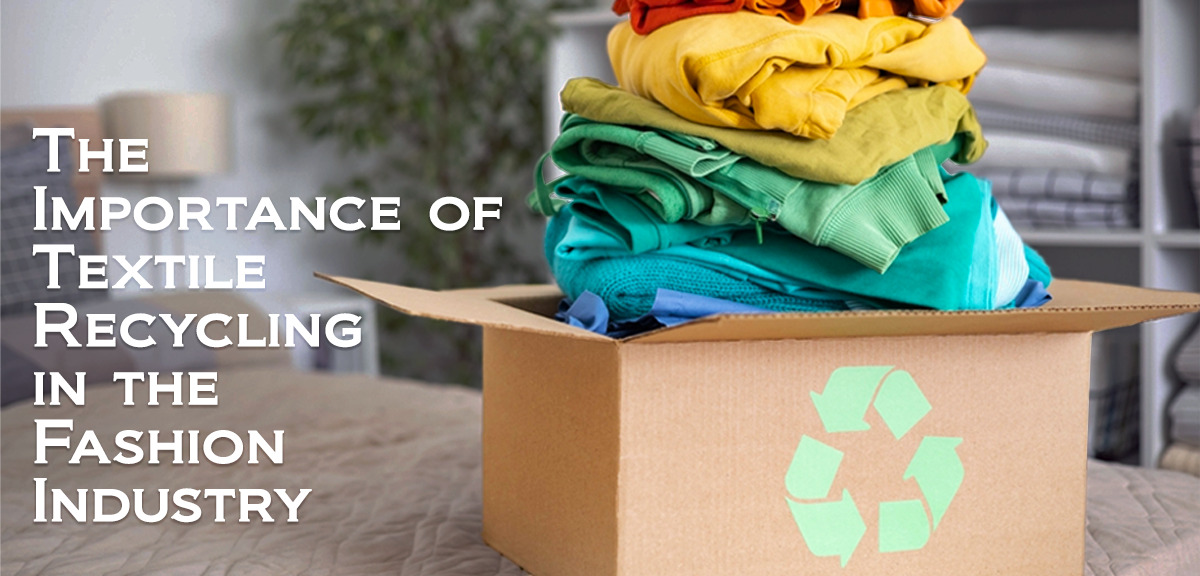The earth’s surface is under a huge burden due to pollution and waste dumps. The growing population and heightened use of natural resources add fuel to the fire.
The textile industry is one of the leading contributors to these environmental threats. It consumes large amounts of water, petroleum, and natural fibers. Also, the tons of fabric waste that goes into the landfills have a significant hand in raising safety alarms.
In these dark times, textile recycling emerges as a beacon of light. It offers a sustainable path that leads to better, safer, and greener destinations.
What is Textile Recycling?
Textile recycling is the method of reusing fabrics and materials to make something useful. When clothes are reused instead of ending up in landfills, environmental waste is eventually reduced. This further leads to less pollution and a lower carbon footprint.
We all know that the rising population is limiting resources in the long run. Recycling clothes is a smart way of maintaining our non-renewable resources. Natural fabrics are recycled mechanically, while artificial ones require the use of chemicals.
The process is a substantial step to promote environmental safety.
Why is Textile Recycling Important?
One of the most remarkable aspects of textile recycling is its ability to breathe new life into old fabrics. This not only conserves valuable resources but also minimizes the carbon footprint associated with the production of new textiles. The idea leads to a more sustainable and creative industry.
- Reduces Waste and Carbon Footprint
Every year, millions of tons of textile waste go into landfills. When these fabrics decompose, they contribute to environmental pollution. The natural fibers produce carbon and methane that damage Ozone while synthetic ones are even harsher, producing nitric oxide. The chemicals used in the dyeing and production of these clothes further contaminate the earth.
Recycling clothes can reduce up to 50% of the clothes waste. There will be a marked reduction in pollution and environmental harm.
- Saves Energy & Water
Many processes of garment manufacturing utilize high amounts of energy. When clothes are recycled and not produced as frequently, energy usage decreases.
Reusing old clothes reduces the need for more clothes production. In recycling, we don’t have to make anything from scratch. Resources like water, fibers, and energy are less frequently consumed.
A single denim pant utilizes hundreds of gallons of water. We can save this water and provide it for those in need through textile recycling. In the long run, it saves more than just some waste.
- Promotes Circular Economy
The usual cycle of making, buying, and disposing of clothes is good for nothing. It only promotes constant waste production.
Textile recycling stands out as a savior in this ever-draining system. It aims to reuse old clothes as many times as possible until they’re not good enough. The process closes the loop by reusing clothes to produce something of value. This way, it not only reduces the need for resources but also saves money by promoting a circular economy.
- Preserving Natural Fibers
Cotton and polyester are the primary fabrics in the textile industry. Cotton production requires land and competes with food production for it. As for polyester, it requires petroleum, a finite resource.
Every year, these fibers are produced in millions of tons. If these numbers keep increasing with the population, the time is not far when there won’t be enough resources left.
The only way out is to adopt a sustainable action plan like textile recycling. Even if half of the fabrics are recycled, the production numbers can drastically improve.
Textile Recycling – The Next Step
There’s no doubt now that textile recycling is the need of the hour. It’s a primary sustainable practice that could transform the industry for the better. Reduced waste disposal, resource consumption, and carbon footprint are the topmost benefits of textile recycling.
Now, there’s only one way forward; adopting this practice on the individual level. Choosing such brands that promote recycling can drive change. Orient Apparel is one such proud garment manufacturer with a focus on sustainable practices.
The choices we make today will shape the industry for generations to come. Let us unite in the pursuit of a greener and better world through textile recycling!





